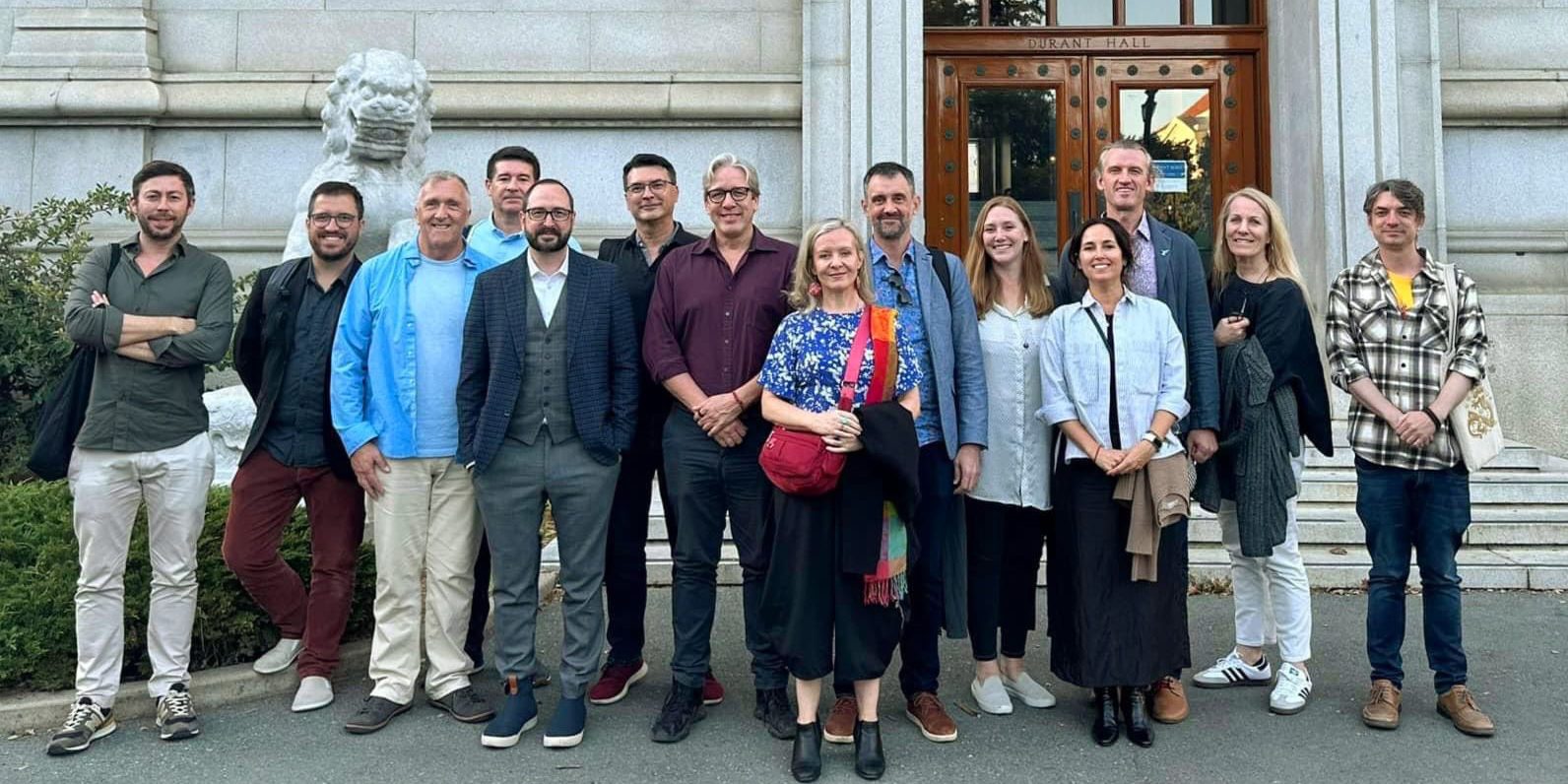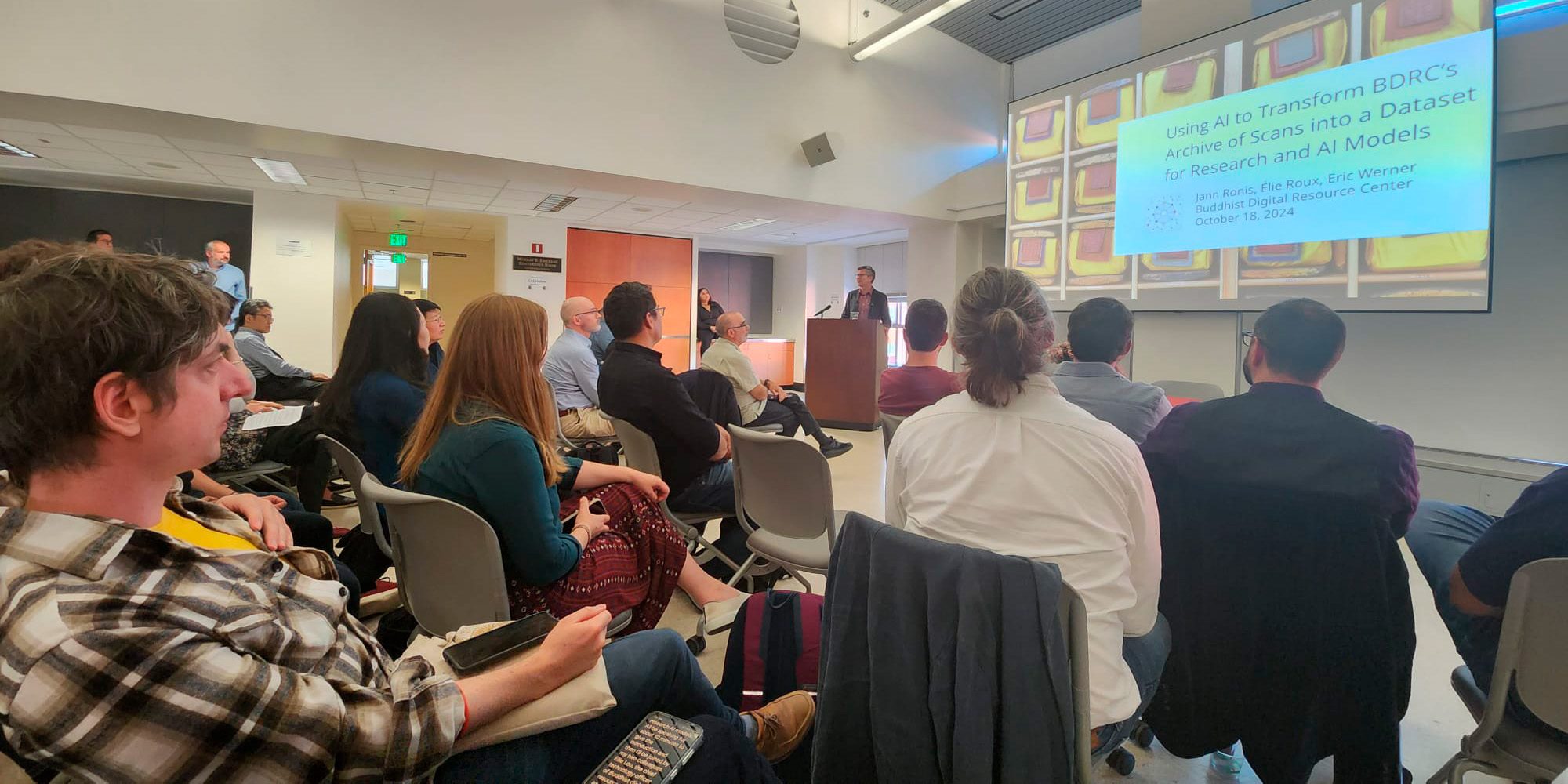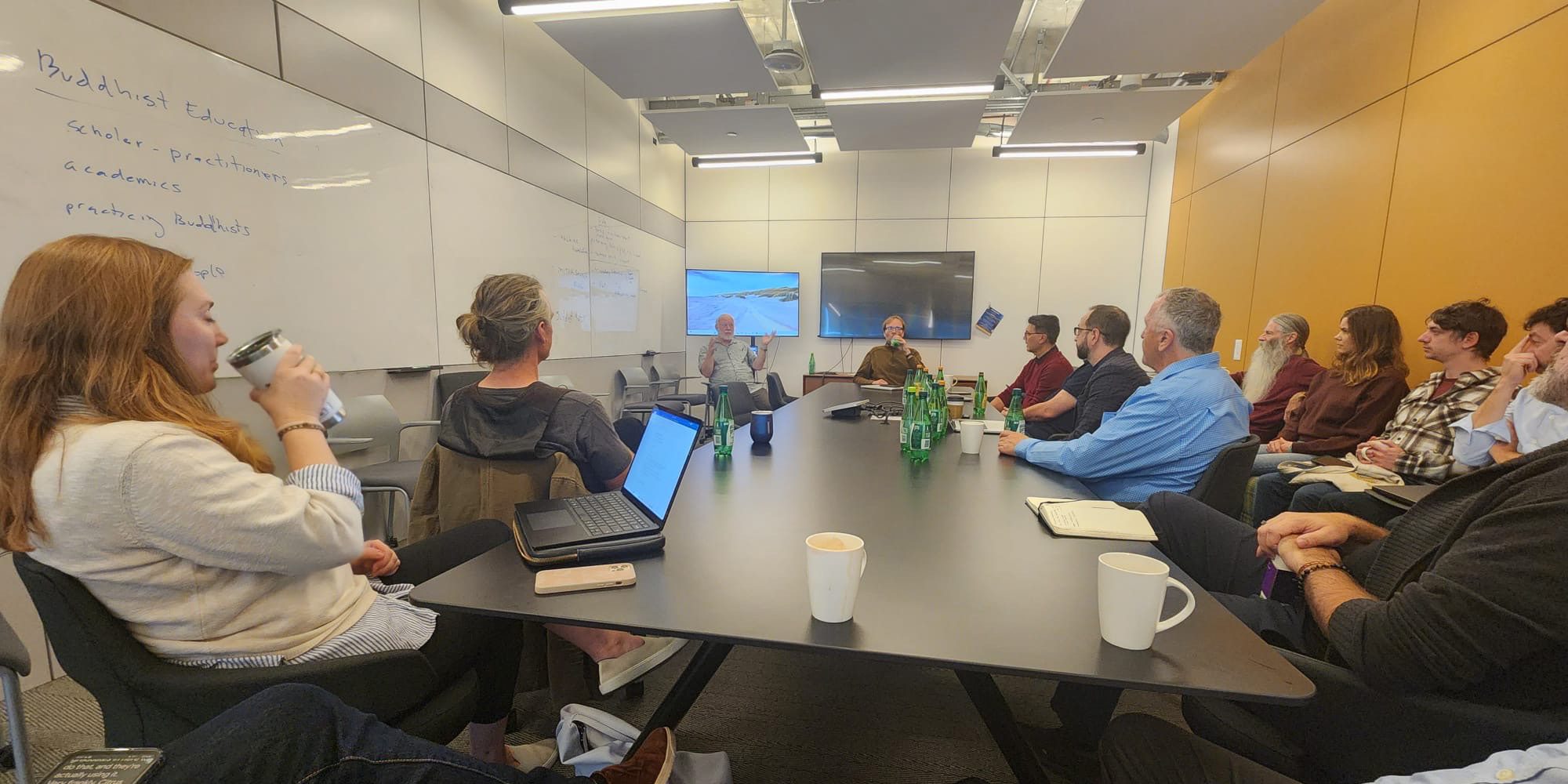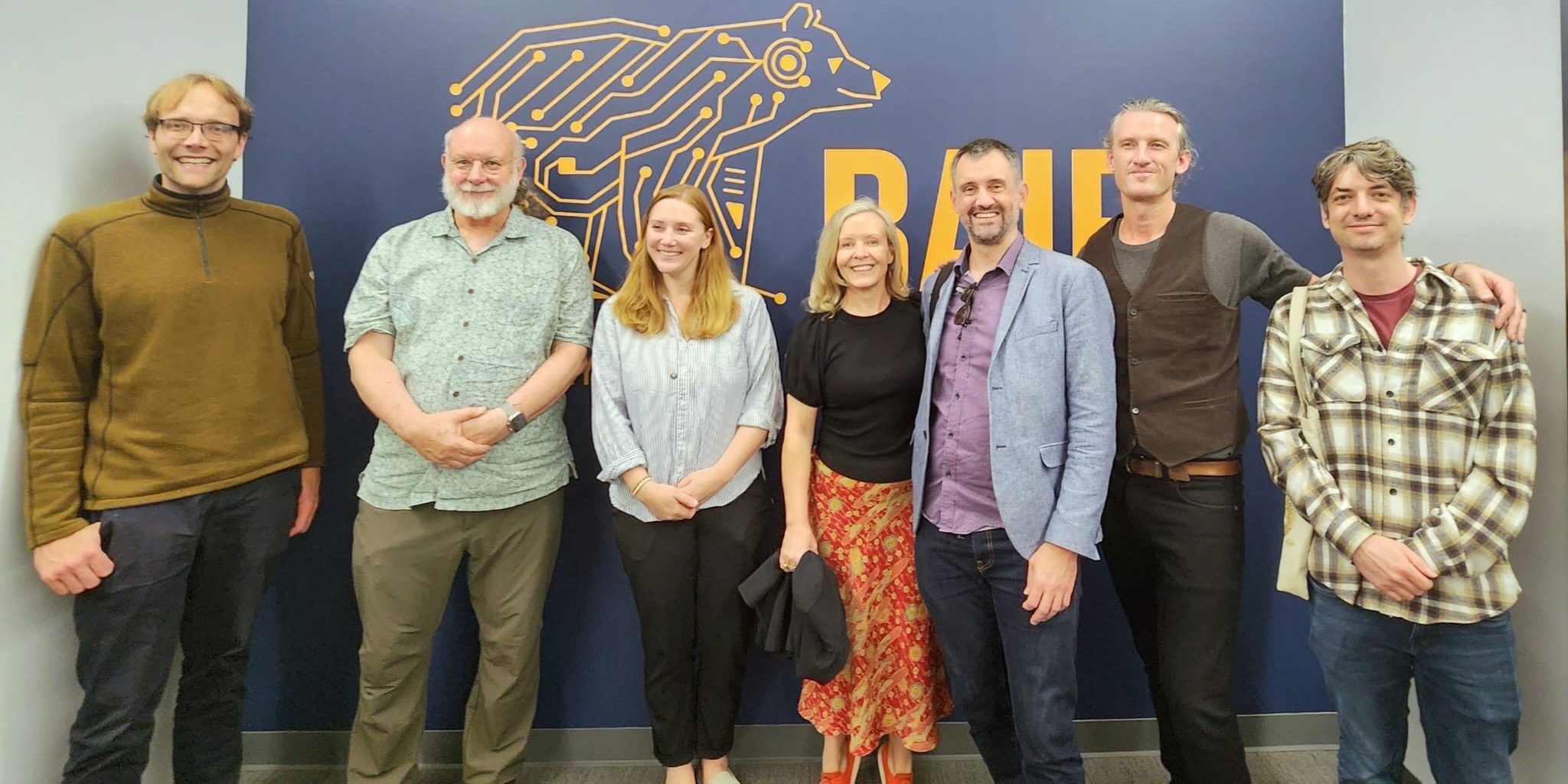KVP Team at Berkeley Conference: AI & the Future of Buddhist Studies
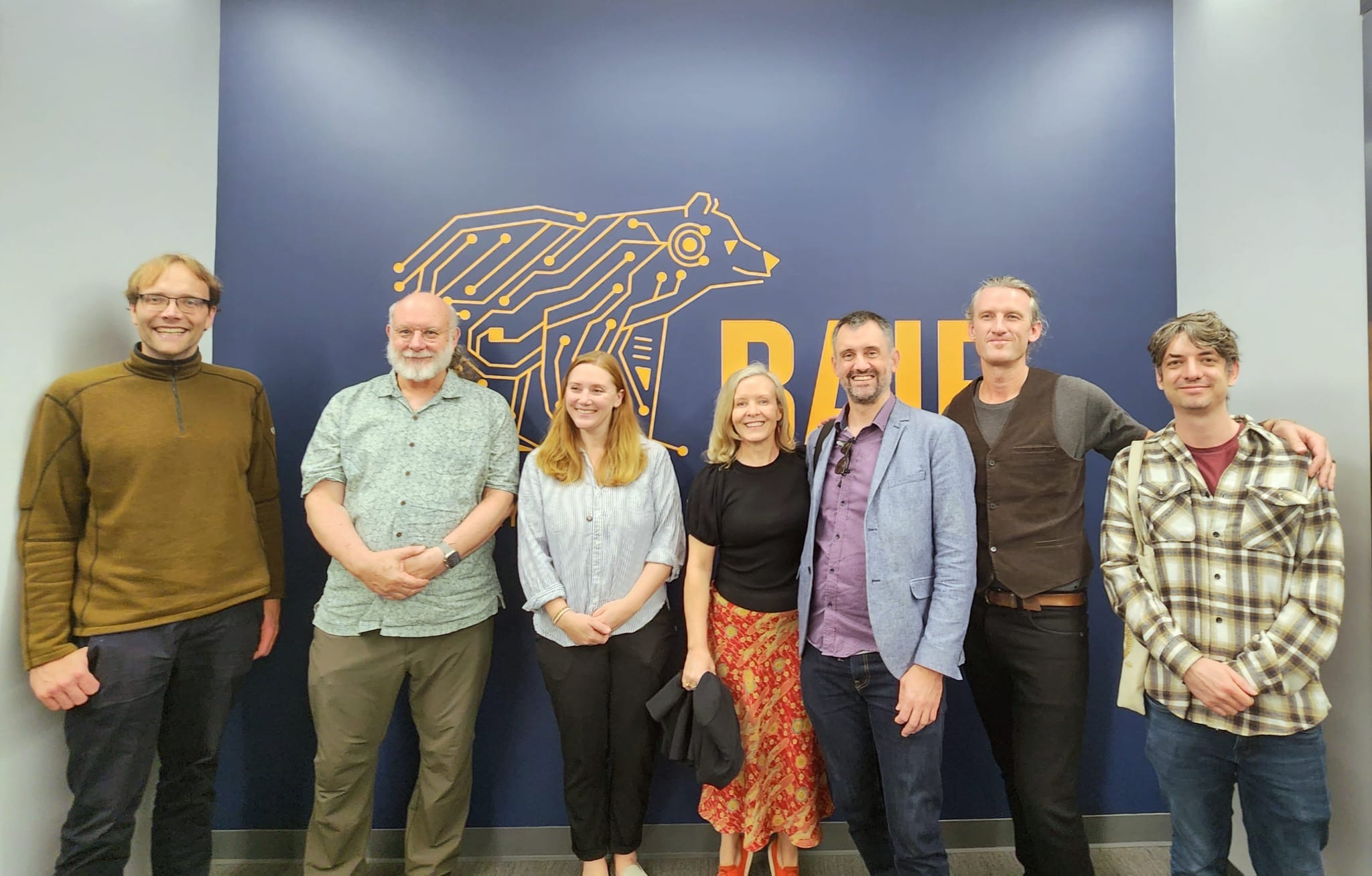
How do we honor the sacred tradition of masters and scholars working side by side on the translation process, while embracing tools that could help enable faster access to these precious teachings? What role should AI play in preserving and disseminating ancient wisdom? And how can we ensure these powerful tools serve the authentic transmission of Dharma rather than dilute it?
In October, KVP’s project director, editorial director, translation team lead, tech lead, and translation memory coordinator, all had the opportunity to attend a special conference hosted by UC Berkeley on “AI and the Future of Buddhist Studies.” Our team joined Kurt Keutzer and Sebastian Nehrdich from UC Berkeley, as well as leading scholars and translators from Dharma Mitra, Tsadra, Buddhist Digital Resource Center (BDRC), and Wisdom Publications, to discuss the application and impact of AI tools such as Large Language Models (LLMS) on the translation of Buddhist literature.
The conference canvassed the full spectrum of views on the integration of AI tools, and focused on the ways in which we can actively improve the tools themselves, so that integrity and authenticity of Dharma translation flourishes into the future. At the end of the conference, there was a more informal gathering where we met with the other translation and publishing organizations to demonstrate the cutting-edge CAT (Computer Assisted Translation) tool KVP has been building over the last six months. This CAT tool is the culmination of years of research and collaboration, and promises to be one of the best tools available that is tailored specifically for Tibetan Buddhist translation work.
After the conference, we met as a team to workshop our takeaway from the conference, and to develop our new KVP policy on AI. Our values & principles inform KVP’s general approach to the use of AI tools, especially the importance of balancing quality and innovation. The type of AI that is relevant for our project are LLMs (Large Language Models) for machine translation and semantic search.
These are five main principles that we established for the integration of AI tools in our project:
1. Quality: We embrace using AI tools to improve quality, while we recognize that AI programs do not replace the expertise of our translators and editors.
2. Speed: We embrace using AI tools to increase productivity and output, however, we are not in favour of prioritizing speed over quality.
3. Integrity: We recognize that at the heart of Vajrayāna is the authentic transmission of wisdom, and the texts of this tradition are pathways to awakening that require blessings and instructions to authentically translate.
4. Environmental impact: We are concerned by the environmental impact from the use of LLMs. To this end we will assess and implement a way to offset our carbon footprint accrued through the use of AI and focus on becoming a carbon-neutral project.
5. Collaboration: Our intention is to help contribute to the betterment of AI tools by helping specific Dharma-oriented organizations refine and enrich their AI platforms, so that the results can be more reliable and targeted to the authentic transmission of Dharma.
If you wish to learn more about our approach to the use of AI tools, you are welcome to send us a message here.

